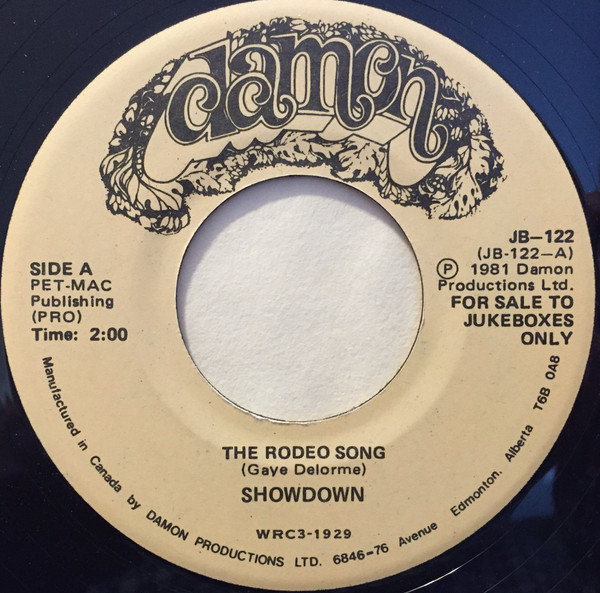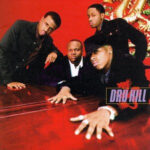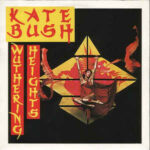 Welcome to the Rodeo Album Cover
Welcome to the Rodeo Album Cover
Let’s face it, Canada has gifted the world with incredible talents, from musical icons like Joni Mitchell and Neil Young to cultural phenomena like Schitt’s Creek. But amidst this rich tapestry of Canadian contributions, there exists a two-minute explosion of pure, unadulterated… well, let’s call it ecstasy. We’re talking about “The Rodeo Song,” a track so potent, so unexpectedly liberating, it can transport you to a state of sheer joy that even Captain Kirk couldn’t orchestrate. Forget being beamed to another planet; this song beams you to another state of mind.
Skeptical? You might be picturing a frigid landscape of -40 degrees, the setting vividly painted in the opening lines, and wondering who in their right mind would attend a rodeo in such brutal conditions. Or perhaps you’re questioning the sanity of anyone who would write a song about it. But before you dismiss it as Canadian madness, spare just two minutes. Immerse yourself in “The Rodeo Song.” Just listen and let the lyrics wash over you.
THE RODEO SONG (Gaye Delorme)
Well it’s forty below And I don’t give a fuck Got a heater in my truck And I’m off to the rodeo
It’s an allemande left And allemande right C’mon you fuckin’ dummy Get your right step right Get offstage you goddamn goof Y’know you piss me off You fuckin’ jerk Get on my nerves
Well here comes Johnny With his pecker in his hand He’s a one-ball man And he’s off to the rodeo
It’s an allemande left And allemande right C’mon you fuckin’ dummy Get your right step right Get offstage you goddamn goof Y’know you piss me off You fuckin’ jerk Get on my nerves
Well it’s forty below And I ain’t got a truck And I don’t give a fuck ‘Cause I’m off to the rodeo
It’s an allemande left And allemande right C’mon you fuckin’ dummy Get your right step right Get offstage you goddamn goof Y’know you piss me off You fuckin’ jerk Get on my nerves
Well here comes Johnny With his pecker in his hand He’s a one-ball man And he’s off to the rodeo
It’s an allemande left And allemande right C’mon you fuckin’ dummy Get your right step right Get offstage you goddamn goof Y’know you piss me off You fuckin’ jerk Get on my nerves
Feeling a little lighter? There’s a reason for that. Let’s delve into the magic behind this unlikely anthem.
The Genesis of a Novelty Hit: Gaye Delorme and Showdown
The alchemy that created this “ecstasy transporter” involved five Canadians. First, the songwriter, Gaye Delorme, a self-taught guitar virtuoso who honed his skills during a stint in reform school. Delorme’s musical journey was eclectic, encompassing flamenco, classical, and jazz, leading him to become a sought-after studio musician and collaborator with artists ranging from the Edmonton Symphony Orchestra to Cheech and Chong.
Then came Showdown, the Canadian band who dared to record this gem. Lead singer Garry Lee’s discovery of “The Rodeo Song” was serendipitous. As recounted in a 2018 Calgary Herald interview, Lee stumbled upon Delorme performing it in a bar in Drayton Valley, Alberta, in 1979.
Lee: There was just me and another guy in the bar and he said three or four times (to the musician), “Hey, buddy, do that song.” And he finally did it and what he did was “The Rodeo Song.”
Holley: We put a tape recorder under the table and taped it. We went back to our room and listened to it again and thought, We could do this. So I got the acoustic out and Garry got the fiddle out and he started sawing away. We said, “We’ll just make this sort of a hoedown.” We created a rough arrangement.
Despite Delorme’s humorous warning that their record-buying public might just be their relatives, Showdown recognized the song’s infectious energy. They included “The Rodeo Song” on their 1982 album Welcome to the Rodeo, and it became an unexpected hit.
From Banned to Beloved: The Enduring Appeal of “The Rodeo Song”
Despite radio bans and censorship, “The Rodeo Song” spread like wildfire, becoming a global underground phenomenon. Though Showdown disbanded due to royalty disputes shortly after its release, the song’s legacy persisted.
Lee: I have students who are teenagers. Sometimes they come to school and smile at me and say, “Guess what my grandpa played for me?” Or, “Guess what my dad played for me? Is that really you?”
LaRocque (guitarist): A guy came up to me (in the late-1990s after a gig in Munich, Germany) and said, “You were in das band,” and he whips out the album for me to sign. That happened all over the place.
Holley: You could hear it in a disco in Adelaide or you could hear it somewhere in Thailand. It’s amazing. It’s a worldwide hit. But it didn’t turn out like worldwide hits usually turn out. I mean, it’s not “She Loves You.”
McLellan (drummer): Last week, some of my high-school students were singing it. They didn’t even know I was the drummer.
Welcome to the Rodeo is a solid country album, but “The Rodeo Song” is undeniably its standout track. The raw energy, the playful guitar riffs, Garry Lee’s distinctive vocals – it all coalesces into something uniquely captivating. The lyrics, a blend of rodeo imagery and expletive-laden frustration, paint a picture of a determined individual battling the elements and, perhaps, the world’s annoyances, all while heading to the rodeo. The Calgary Stampede might be a summer event, but in “The Rodeo Song,” the spirit of rodeo transcends seasons and logic.
Why “The Rodeo Song” Resonates: Naughtiness, Defiance, and Mental Release
So why does a song with such salty language and seemingly absurd premise hold such enduring appeal? And what does it have to do with mental health?
Part of its charm lies in its naughtiness. There’s a universal thrill in indulging in the slightly forbidden. Like a guilty pleasure, “The Rodeo Song” offers a taste of irreverence, a playful rebellion against societal norms. The very act of listening to a banned song carries a rebellious spark, a declaration of independence against censorship and control.
Furthermore, “The Rodeo Song” taps into a relatable frustration: road rage. The lyrics echo the expletives many of us unleash in the privacy of our cars when faced with incompetent drivers. Turning to swear words in these moments, as opposed to more destructive reactions, can be a surprisingly healthy release valve for pent-up tension.
This brings us to the connection with mental health. As highlighted in a Washington Post article, swearing can have therapeutic benefits. Elizabeth Jameson, in her article “How I Learned that Swearing Can Be Good for the Soul,” describes how embracing profanity helped her cope with the frustrations of living with multiple sclerosis. She found freedom and release in the act of swearing, a way to defy the constraints of her condition and societal expectations.
“Well, f— you too, Ted!” I beamed.
It was a deliverance from my overly controlled life. It was freedom, a fresh breath of air.
Science backs this up, with studies showing that swearing can increase pain tolerance and improve stamina in stressful situations. “The Rodeo Song,” in its own boisterous way, provides a similar cathartic release. It’s a permission slip to vent, to laugh, to embrace a bit of glorious irreverence.
Gaye Delorme may not have intended “The Rodeo Song” as a therapeutic tool, but he inadvertently created just that. It’s a shot of musical adrenaline that encourages listeners to embrace freedom, defy expectations, and maybe, just maybe, tell those “fucking dummies” to get out of the way – metaphorically speaking, of course. The enduring popularity of “The Rodeo Song” isn’t just about its catchy tune; it’s about celebrating individual liberty, the joy of letting loose, and having one helluva good time, even when it’s forty below.
References:
- Cruickshank, S. (2018, March 9). Alberta crude: Four hard-working local musicians reflect on their 40-year-old hit, The Rodeo Song. Calgary Herald. https://calgaryherald.com/life/swerve/alberta-crude-four-hard-working-local-musicians-reflect-on-their-40-year-old-hit-the-rodeo-song
- Jameson, E. (2022, July 29). How I Learned that Swearing Can Be Good for the Soul. The Washington Post. https://www.washingtonpost.com/outlook/2022/07/29/swearing-therapeutic-multiple-sclerosis-chronic-illness/
- Stephens, R., Atkins, J., & Kingston, A. (2018). Swearing as a response to pain. The Journal of Pain, 20(2), 173-181. https://www.researchgate.net/publication/26659449_Swearing_as_a_response_to_pain
- Stevens, C., & Jiang, B. (2016). Effect of swearing on strength and power performance. Psychology of Sport and Exercise, 25, 131-138. https://www.sciencedirect.com/science/article/abs/pii/S1469029216301352
- Gaye Delorme mini-bio. CanadianBands.com. https://canadianbands.com/artists/gaye-delorme/


